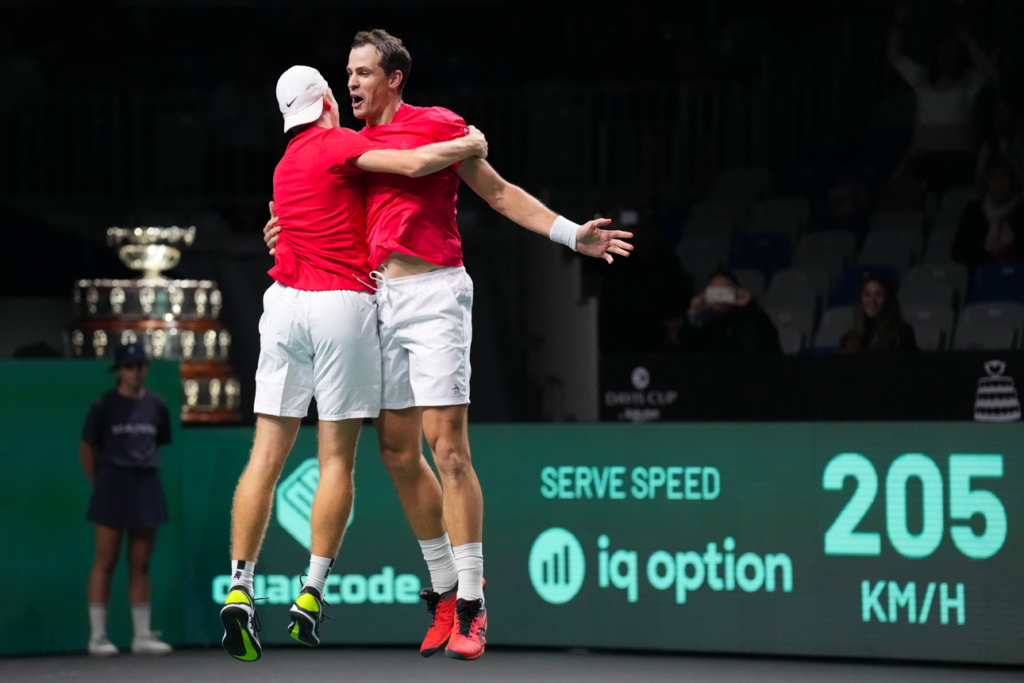
Photo: Martin Sidorjak
Canada advanced to the semifinals of the Davis Cup Finals in Malaga with a dramatic 2-1 victory over Germany on Thursday.
Things looked grim when Jan-Lennard Struff beat Denis Shapovalov 6-3, 4-6, 7-6(2) in the opening singles before Félix Auger-Aliassime levelled the quarter-final tie at one apiece with a thoroughly professional performance, worthy of his current No. 6-ranked status, 7-6(1), 6-4 over Oscar Otte.
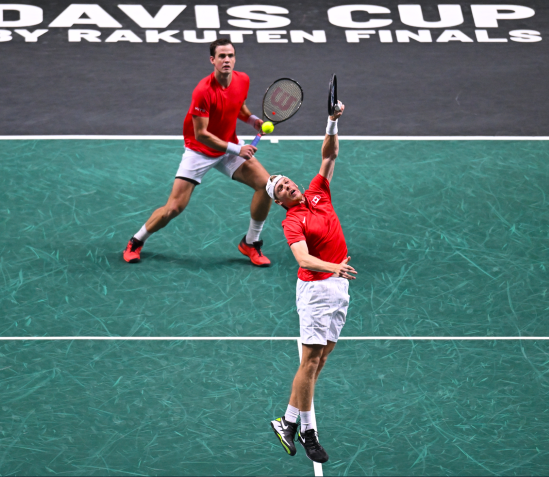
Facing an accomplished (7-0) Davis Cup doubles pair in Tim Puetz and Kevin Krawietz in the decisive third match, Vasek Pospisil and Shapovalov appeared over-matched after losing the opening set 6-2 in 32 minutes. But things changed suddenly when Pospisil rifled a backhand down-the-line return to break the Krawietz serve for 3-1 in the second set. That launched Canadians on a spectacular run of tennis that can only be described as “being in the zone.” Pospisil hit a series of brilliant service returns and a timely ace to save the German tandem’s last break point chance of the match in the seventh game of that second set.
Shapovalov was the anchor of the team from the serving standpoint, crushing heavy, well-placed deliveries that bamboozled Puetz and Krawietz. He didn’t face a single break point in seven service games. And the brute force of his magical arm that just explodes on the ball – including on the final forehand serve-return winner on the second match point – simply overwhelmed the German duo. Final score – 2-6, 6-3, 6-3.
In the zone is basically players who are in total control of their games – an almost out-of-body experience. Talking about how it felt to be playing that well in doubles, something he has done before in singles, Shapovalov said, “I think it’s even better – to share the court with your partner and both guys are just ripping winners. Playing well together it’s even more fun.”
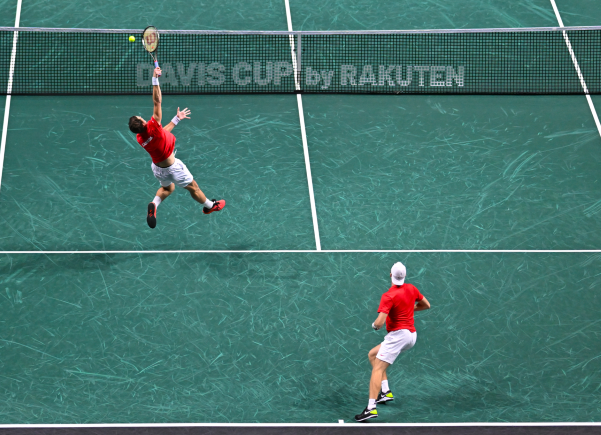
When Pospisil was asked about the importance of the lefty (Shapovalov) and righty (him) combination, he replied, “for us, more than lefty/righty is just how Denis and I are kind able to of really bring the best out of each other. We have very good energy and for me I know how incredibly talented Denis is – one of the game’s best already obviously. Some of what I do on the court is I know that at any moment he can really light it up so I’m trying to keep the energy high. Which is good for me – that makes me play better. We’ve showed it in the past the very few times that we’ve played. Davis Cup 2019, we played some incredible matches there – very high level. And we did it again today.”
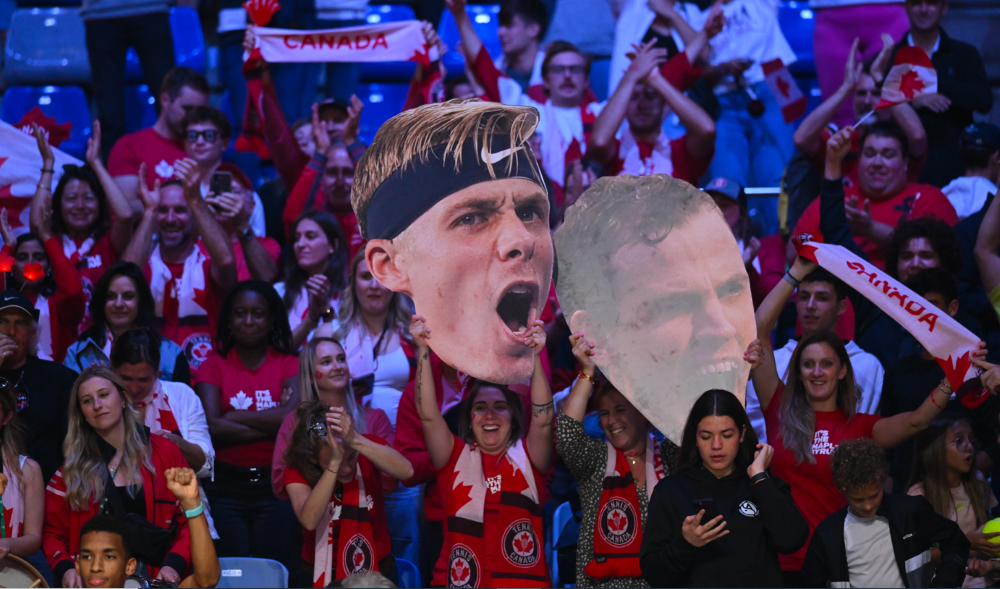
Captain Frank Dancevic later confirmed that Pospisil/Shapovalov’s stellar play in Madrid in 2019, when Canada reached the Davis Cup final against Spain, was a major factor in his decision to put them together again.
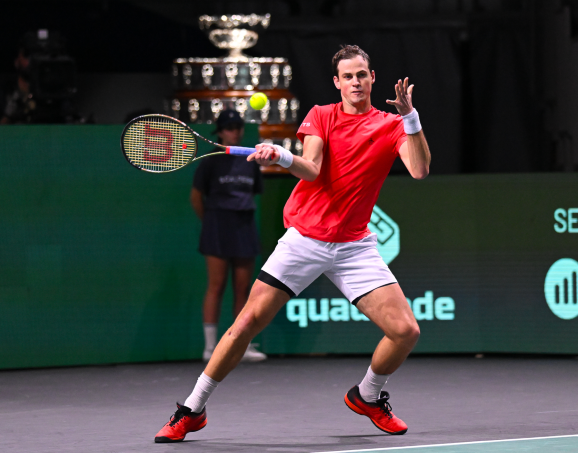
Offering his own insight about the stunning reversal of fortune in the match, Dancevic said, “I really felt like when we started finding our game, the momentum was going to shift. That was the message I was relaying to the guys. We didn’t know obviously that there was going to be such a big shift in momentum. That was sort of the idea when we were down 6-2. They had a good game (fourth of the second set). Vasek hit an incredible return to break and we got energy, we got momentum. From there on it was just a tsunami of winners and emotions and everything going on. They just played an incredible last two sets. I don’t think the other team dropped their level. The guys raised their level, picked up their game. They played amazing – there’s no other way to put it.”
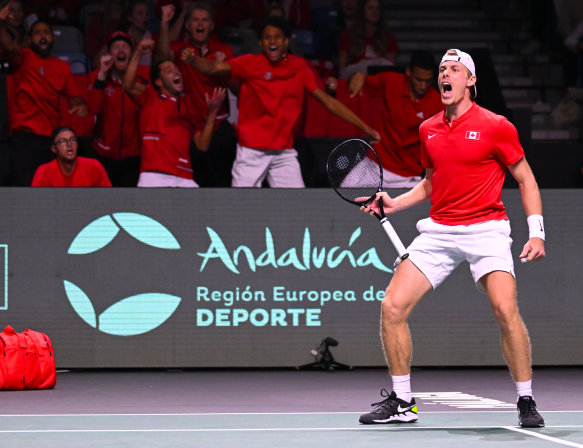
Shapovalov was not at his best in singles. He lost his serve on a double fault (10 in total for the match) in the opening game against Struff and then doubled-faulted twice in losing his serve to 1-3 in the final set. Though he was able to then save two match points and break Struff at 4-5, his level again dropped in the eventual tiebreak, which the big German won 7-2.
“I’ve played Shapo many times,” Struff said. “I saw I was leading the head-to-head (5-3) but on hard courts, he was leading 3-2. So I would say it was a really tough match.”
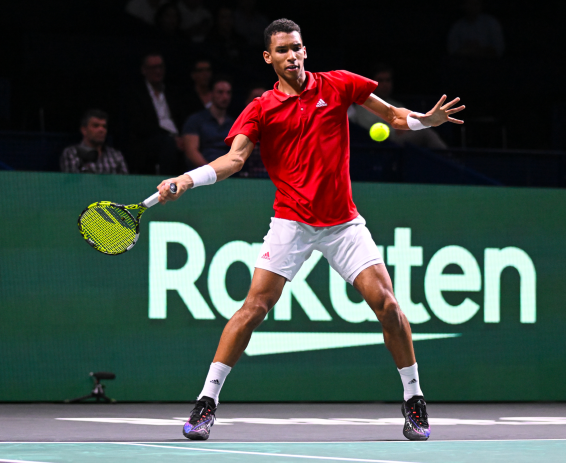
Facing the tall, gangly Otte, there was a sense that Auger-Aliassime was always in control. He had chances in the opening set but was able to really step up a level in the deciding tiebreak – running off five points in a row to take it 7-1. The second set was decided on a break to 4-3 as Auger-Aliassime, calm and controlled, continued to show his superiority.
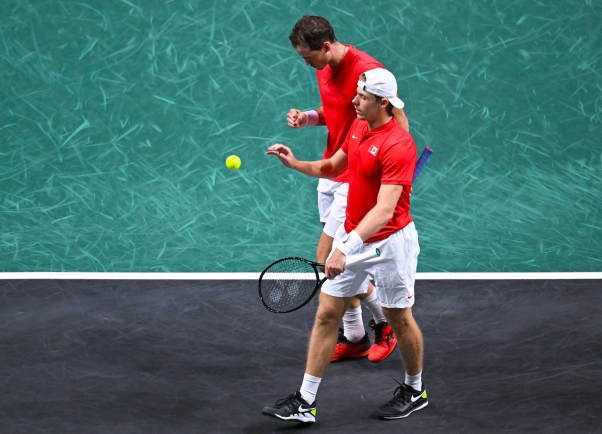
Next for Canada will be a match-up in the semifinals on Saturday at 1 p.m. (7 a.m. ET in Canada) against Italy. The Italians defeated the USA 2-1 earlier on Thursday as Lorenzo Sonego beat Frances Tiafoe and Fabio Fognini and Simone Bolelli outplayed Tommy Paul and Jack Sock in the doubles after Taylor Fritz had evened the tie at 1-1 with a win over Lorenzo Musetti.
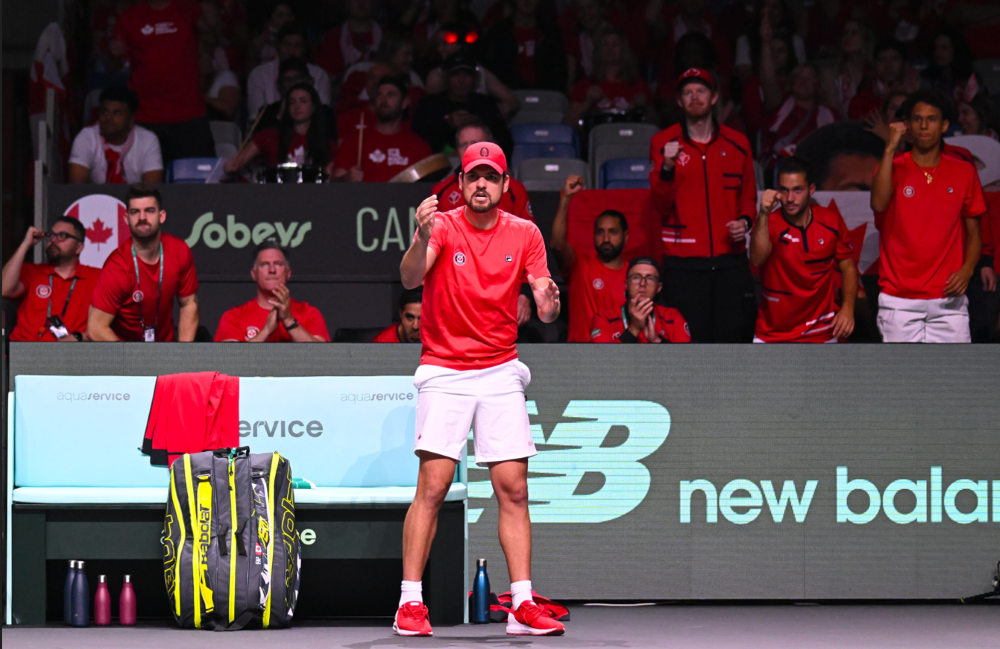
In the 100 years – 1922 to 2022 – that Canada and Italy have both been in the Davis Cup competition, they have only played twice. Canada defeated Italy 3-1 in Vancouver in 2013 and again in its opening match in the round-robin phase of the 2019 Davis Cup Finals in Madrid by a 2-1 score.
The prospective singles match-ups would be No. 18-ranked Shapovalov versus No. 45 Sonego. Shapovalov won their only previous meeting – 7-6(5), 3-6, 6-3 in the first round of this year’s Italian Open.
The singles between the team’s No. 1 players would be Auger-Aliassime against No. 23 Musetti. Their head-to-head is 2-2 – with most-recently Auger-Aliassime winning 6-2, 6-3 in Florence last month and Musetti prevailing 6-2, 7-6(2) in Monte Carlo in April.
Maybe the last word for the day belongs to Krawietz, who was feeling pretty down after losing the doubles in such a decisive manner to Pospisil and Shapovalov. But he managed to joke, referring to Germany’s 2-1 loss to Japan in World Cup action in Qatar on Wednesday, “like the German soccer team, they also play unbelievable until 60 minutes. Maybe we too, only the first set and we cannot finish it.”
NOTE: Canada vs. Italy will be carried on Sportsnet One and TVA Sports 2 beginning at 7 a.m. ET on Saturday.


